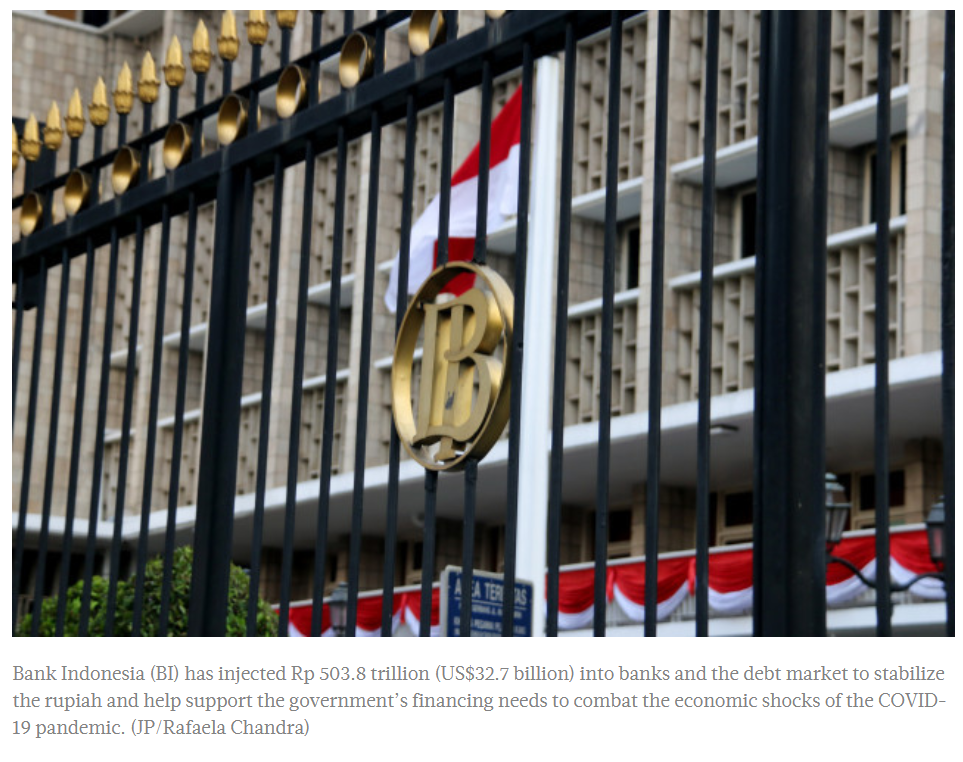Indonesia: BI injects $32.7b into financial system as rupiah strengthens
Bank Indonesia (BI) has injected Rp 503.8 trillion (US$32.7 billion) into banks and the debt market to stabilize the rupiah and help support the government’s financing needs to combat the economic shocks of the COVID-19 pandemic.
BI Governor Perry Warjiyo said that banks would be obliged to buy government bonds after the central bank freed up Rp 102 trillion in liquidity. Starting May 1, the reserve requirement ratio will be lowered by 200 basis points (bps) for commercial banks and 50 bps for sharia banks.
BI’s policy to revoke banks’ obligation to fulfil the Intermediary Macroprudential Ratio (RIM) would add another Rp 15.8 trillion of liquidity, said Perry.
“Fiscal policy will be crucial in channeling these funds into the real economy sector,” Perry told an online media briefing on Wednesday. “These quantitative easing measures taken by the central bank will fuel economic activities.”
This is in addition to the Rp 386 trillion worth of liquidity freed by the central bank since the beginning of the year to support the country’s crashing currency and boost banks’ liquidity, Perry said.
The central bank has bought Rp 166.2 trillion worth of government bonds in the secondary market as investors dumped Indonesian assets over fears about COVID-19, resulting in a slump in the value of the rupiah, which depreciated as much as 18.5 percent in early March.
BI’s repurchase agreements (repos) with banks through government bonds as underlying assets has provided the financial system with Rp 137.1 trillion, while BI’s decision to lower the reserve requirement ratio since the beginning of the year has provided banks with Rp 53 trillion. Furthermore, BI’s monetary operations in the form of foreign exchange swaps has provided Rp 29.7 trillion, according to Perry.
The rupiah has started to gain against the greenback over the last few weeks, strengthening to Rp 15,394 per US dollar as per 11 a.m. on Wednesday from this year’s low of 16,625 per US dollar, according to Bloomberg data.
“The volatility of the rupiah is due to technical factors affected by the ongoing conditions,” Perry said, citing the country’s large-scale social restrictions and economic growth projections and other issues as “negative news”. “However, there are also positive factors such as successful bond sales by the government and the strengthening futures market in the US.”
The central bank regards the current rupiah level as “fundamentally undervalued” and projects the country’s currency to reach Rp 15,000 per US dollar by the end of the year.
Source: https://www.thejakartapost.com/news/2020/04/29/bi-injects-32-7b-into-financial-system-as-rupiah-strengthens.html


 English
English




